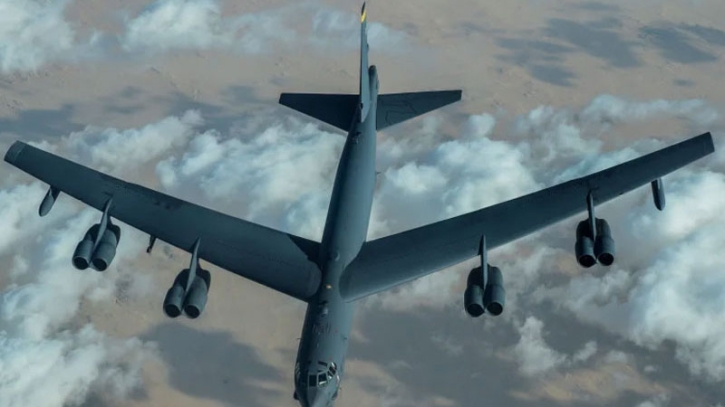US to deploy B-52 bombers to Australian air base

The Biden administration is preparing to deploy six nuclear-capable B-52 bombers to an air base in northern Australia, according to the Australian Broadcasting Corporation (ABC).
Citing US documents, ABC reported that the US had drawn up detailed plans to build dedicated facilities for the aircraft at the Tindal Air Base, about 300km (185 miles) south of the city of Darwin in Australia’s Northern Territory.
The Australian Department of Defence did not comment on the report, but the US Air Force told the broadcaster that its ability to deploy bombers to “Australia sends a strong message to our adversaries about our ability to project lethal air power”.
Analysts told ABC the move was a warning to China amid fears it could invade the self-ruled island of Taiwan.
“Having bombers that could range and potentially attack mainland China could be very important in sending a signal to China that any of its actions over Taiwan could also expand further,” said Becca Wasser from the Center for New American Security.
The tensions with China have made northern Australia a crucial defence hub for the US and it has committed to spending $1 billion to upgrade its military assets in the region.
Washington’s plans for Tindal include a “squadron operations facility” for use during the Northern Territory’s dry season, an adjoining maintenance centre, and a parking area for the six B-52s, it said.
The B-52, designed and built by Boeing, is the most combat-capable bomber in the US inventory, according to the aircraft maker.
The long-range heavy bomber has been the backbone of the US Air Force and is able to deploy both nuclear and conventional weapons.
ABC quoted the US Air Force as saying that Australia’s ability to host the bombers and conduct joint training exercises demonstrate “how integrated our two air forces are”.
The reported move is likely to inflame tensions with China.
Beijing was quick to condemn a previous defence pact signed between Australia, the US and the United Kingdom in 2021 that proposed to give Canberra the technology to build nuclear-powered submarines for the first time.
At the time, a spokesperson for China’s Foreign Ministry said the historic AUKUS pact risked “severely damaging regional peace” and “intensifying the arms race”.
.png)




